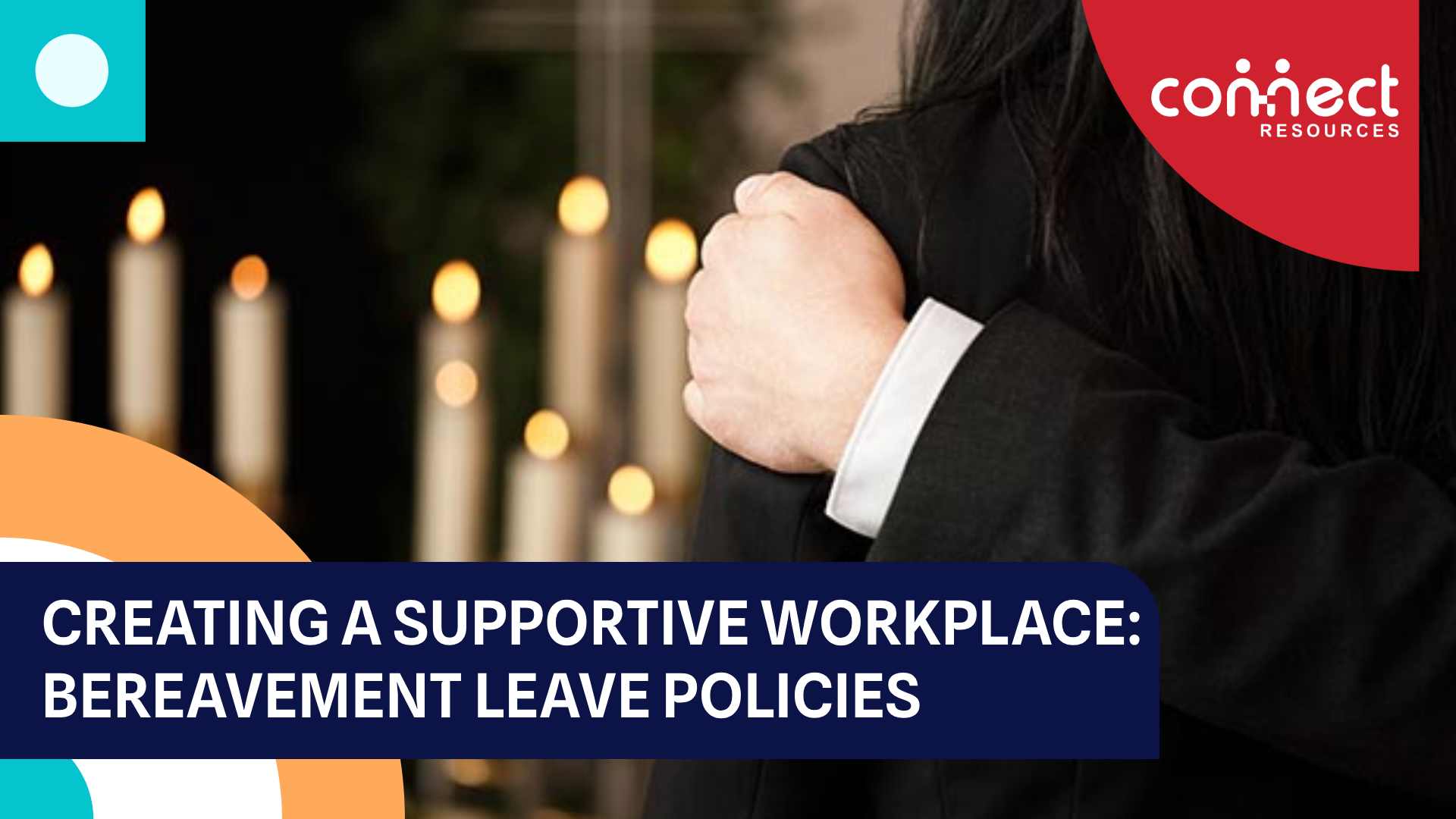The UAE (United Arab Emirates) is a dynamic and fruitful country, where people from many different cultures and backgrounds work together to achieve common professional goals. However, this also means that employees may face various challenges and difficulties in their personal and professional lives, such as the loss of a loved one, a serious illness, or a family emergency. This is where compassionate leave UAE comes in.
Employees are entitled to five days of paid leave for the death of a spouse, and three days for the death of a parent, child, sibling, grandchild, or grandparent.
In this article, we will explore some of the aspects of compassionate leave in Dubai or the UAE. Furthermore, how employers can create a supportive workplace for their employees. In unpredicted situations, employees need support and understanding from their employers and colleagues. As well as time to cope and recover.
Eligibility Criteria for Compassionate Leave
Compassionate leave UAE (United Arab Emirates) is a type of leave that allows employees to take time off work for a valid reason in relation their personal circumstances. Such as, bereavement, illness, or injury of a close relative or friend. Compassionate leave can be paid or unpaid, depending on the employer’s policy and the legal regulations in the UAE
However, it is important to remember that you need a work visa while operating in Dubai, Abu Dhabi and all over the UAE.
The eligibility criteria for compassionate leave UAE Labor Law may vary depending on the employer’s policy. However, it also depends on the employee’s contract. Furthermore, some general guidelines are:
- Employees should inform their employer as soon as possible about the need for compassionate leave. They should provide evidence if the employer requires it.
- The workers should specify the duration and reason for the leave. Therefore, they obtain the approval from their employer.
- Employees should not take more than the agreed amount of leave. However, it can happen if there are some exceptional circumstances.
- Workers should not abuse compassionate leave or use it for purposes other than those intended.
Documentation Requirements for Bereavement Leaves
Bereavement leave Dubai Labor Law is a specific type of compassionate leave that allows employees to take time off work to mourn the death of a close relative or friend. Bereavement leave is also not mandatory in UAE. However, some employers may offer it as part of their benefits package or as a goodwill gesture.
The documentation requirements for bereavement law UAE leave may vary depending on the employer’s policy and the employee’s contract. However, some of the general guidelines are:
- Employees must provide a death certificate or other proof of death to their employer.
- The workers should indicate the relationship between them and the deceased person and the date of death.
- Workers should not take more than the specific amount of leave unless there are exceptional circumstances occurring.
- Employees should not abuse bereavement leave or use it for purposes other than those intended.
- The employees should request bereavement leave within a reasonable time frame after the death, usually within a week.
Bereavement leave Dubai Labor Law is given during unpredictable times. That is why you should be aware of the regulations on this specific subject.
Paid vs. Unpaid Compassionate Leave
One of the main factors that affects compassionate leave in Dubai or UAE is whether it is paid or unpaid. In UAE, there is no legal obligation for employers to provide a compassionate leave with payment to their employees. However, some employers may choose to do so as part of their benefits package or corporate social responsibility. Paid compassionate leave can help employees cope with the financial stress of losing a loved one or facing a family crisis. Furthermore, it can also boost their loyalty to the company and their morale in general.
On the other hand, unpaid compassionate leave is mandated by the UAE Labour Law. Which states that employees have a right to three days of unpaid leave per year in case of the death of a first-degree relative. Such as a spouse, parent, or child. Nonetheless, they have one day of unpaid leave per year in case of the death of a second-degree relative. Such as a sibling, grandparent, or grandchild.
However, employees also have the right to 15 days of unpaid leave per year for personal reasons, which can include compassionate motives.
The difference between paid and unpaid compassionate leave can have a significant impact on the employee’s income and budget, especially if they have to deal with additional expenses related to their emergency situation. Therefore, employees should carefully weigh the pros and cons of taking paid or unpaid compassionate leave, and consider their short-term and long-term financial goals.
Duration and Frequency of Compassionate Leave
Another factor that affects compassionate leave is the duration and frequency of the leave. The duration and frequency of compassionate leave UAE may vary depending on the employer’s policy and the employee’s situation, like their contract or type of employment visa in UAE. Some employers may grant more than the minimum required by law, while others may stick to the legal minimum. Some employers may allow employees to take compassionate leave UAE Labor Law in one block. While others may allow them to split it into smaller periods.
However, some employers may also require workers to provide evidence of their need for compassionate leave. For example, a death certificate or a medical report if it is necessary.
The duration and frequency of compassionate leave UAE can have an impact on the employee’s work performance and productivity. As well as their personal and professional relationships.
Taking too much or too little compassionate leave can affect the employee’s mental and emotional well-being, as well as their ability to cope with their situation. Therefore, employees should communicate with their employer about their situation and expectations. Also, they should try to reach a mutually agreeable solution if necessary.
Legal Regulations for Paid and Unpaid Leave
A third aspect that affects compassionate leave is the legal regulations for paid and unpaid leave. As mentioned above, the UAE Labour Law regulates the minimum amount of unpaid compassionate leave that employees have a right to. However, there are no specific rules for paid compassionate leave. Which means that employers have more flexibility and discretion in setting their own policies in these cases.
Employers should make sure that their policies are clear and consistent. Furthermore, they should comply with the general principles of the UAE Labour Law, such as non-discrimination and fairness.
The legal regulations for paid and unpaid leave can have an impact on the employee’s rights and obligations, as well as their end-of-service benefits. For example, some employers may require employees to return to work after a certain period of time, or to use up their annual leave before taking paid compassionate leave. Some employers may also deduct the amount of compassionate leave with payment from the employee’s end-of-service gratuity. Which is a lump sum payment that employees receive when they terminate their employment contract.
Therefore, employees should be aware of the legal regulations for paid and unpaid leave, and how they affect their employment contract and benefits. They should also consult with their employer or a legal expert if they have any questions or concerns. Additionally, they should always check their visa status in Dubai or UAE before applying or asking for any kind of leave.
Balancing Financial and Personal Needs
Another important factor that affects compassionate leave UAE is balancing financial and personal needs. One of the challenges that employees may face when taking compassionate leave is balancing their financial and personal needs. Taking unpaid leave can have a significant impact on their income and budget, especially if they have to deal with additional expenses related to their emergency situation. On the other hand, taking a leave with payment can reduce their financial burden. However, it may also come with certain conditions or limitations that could affect their personal needs.
For example, some employers may require employees to return to work after a certain period of time, or to use up their annual leave before taking paid compassionate leave. Some employers may also deduct the amount of paid compassionate leave from the employee’s end-of-service gratuity, which is a lump sum payment that employees receive when they terminate their employment contract.
Therefore, employees should carefully weigh the pros and cons of taking paid or unpaid compassionate leave, and consider their short-term and long-term financial goals. They should also communicate with their employer about their situation and expectations, and try to reach a mutually agreeable solution.
Single vs. Multiple Leave Instances
A fifth factor that affects compassionate leave is dealing with single or multiple instances of emergencies. For example, an employee may have to take compassionate leave for the death of a parent, and then shortly after for the death of a sibling. Or an employee may have to take compassionate leave UAE for the serious illness of a spouse, and then again for their own health issues.
In such cases, employees should check with their employer about their policy on multiple instances of compassionate leave. Some employers may grant additional days of leave for each instance. However, some others may limit the total amount of leave per year. Some employers may also consider each instance separately, while others may treat them as one continuous period.
Dealing with single or multiple instances of emergencies can have an impact on the employee’s emotional and psychological state, as well as their ability to cope with their situation. Therefore, employees should seek professional help from a counselor or therapist if they feel overwhelmed or depressed. They should also maintain a healthy lifestyle and a positive outlook, and seek support from their family and friends.
How to Create a Supportive Workplace?
Taking compassionate leave UAE can be a difficult and stressful experience for both employees and employers. Therefore, it is important to create a supportive workplace culture that values empathy, flexibility, and compassion. Now we will provide you some of the ways that employers can create a supportive workplace include:
- Providing clear and consistent policies on compassionate leave
- Complying with the general principles of the UAE Labour Law
- Granting more than the minimum required by law if possible
- Allowing employees to take compassionate leave in one block or split it into smaller periods
- Not requiring employees to provide evidence of their need for compassionate leave if not necessary
- Providing emotional support and resources to employees who need to take compassionate leave
- Not deducting the amount of paid compassionate leave from the employee’s end-of-service gratuity if possible
- Respecting the employee’s privacy and confidentiality
- Being flexible and understanding with the employee’s work performance and productivity
- Encouraging teamwork and collaboration among colleagues
By creating a supportive workplace culture, employers can help employees cope with their personal or family emergencies, and foster a positive and productive work environment.
Financial Planning During Compassionate Leave
A factor that affects compassionate leave UAE Labor Law is financial planning during the leave time. Taking a compassionate leave can have a significant impact on an employee’s financial situation, especially if it is unpaid or prolonged. Therefore, employees should plan ahead and prepare for any potential emergencies that may require them to take this type of leave. Some of the steps that employees can take include:
- Saving up an emergency fund that can cover at least three to six months of living expenses
- Buying adequate insurance coverage that can protect them and their family from unexpected medical bills or funeral costs
- Creating a budget and tracking their spending habits
- Reducing unnecessary expenses and debt
- Seeking professional advice from a financial planner or counselor
Financial planning during compassionate leave can help employees avoid or minimize the financial stress that may arise from taking time off work. It can also help them achieve their long-term financial goals and secure their future.
Conclusion
Compassionate leave UAE is an important benefit that can help employees cope with personal or family emergencies. However, it can also pose some challenges for both employees and employers in terms of duration, frequency, payment, and legal regulations. Therefore, both parties should communicate openly and respectfully, and try to find a balance between their financial and personal needs. Employers should also create a supportive workplace culture that values empathy, flexibility, and compassion.
Creating a supportive workplace in UAE can benefit both employers and employees by fostering a positive work environment, reducing stress and absenteeism. Also, improving performance and retention. By following these best practices for compassionate and bereavement leave Dubai Labor Law, employers can show their care and respect for their employees and their personal lives.
Furthermore, if you need more information on this subject or others in relation to UAE, you can contact us without hesitation today.










